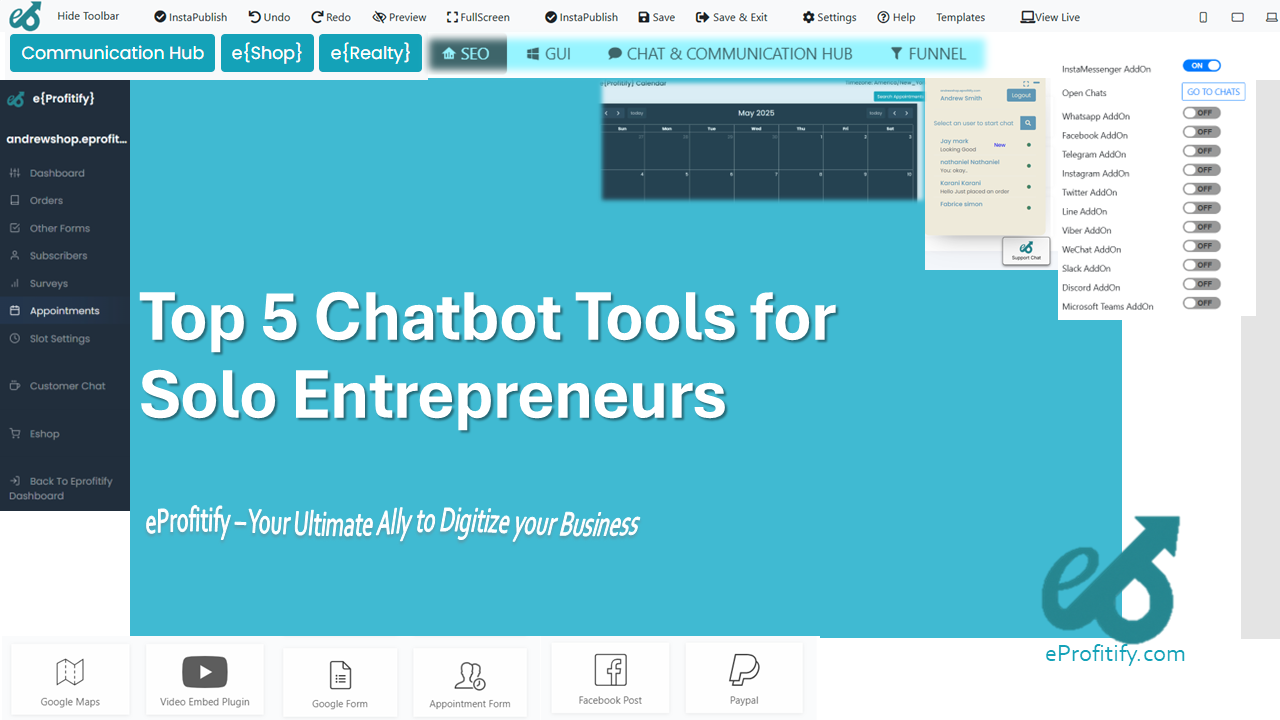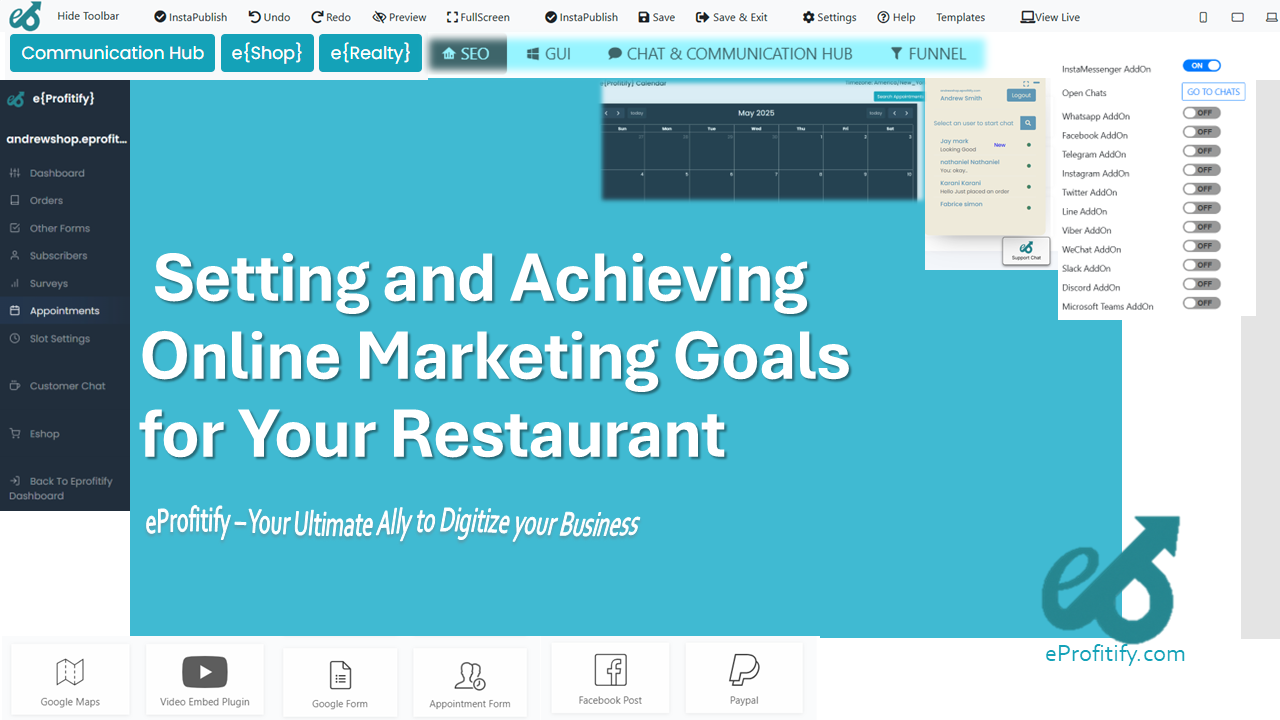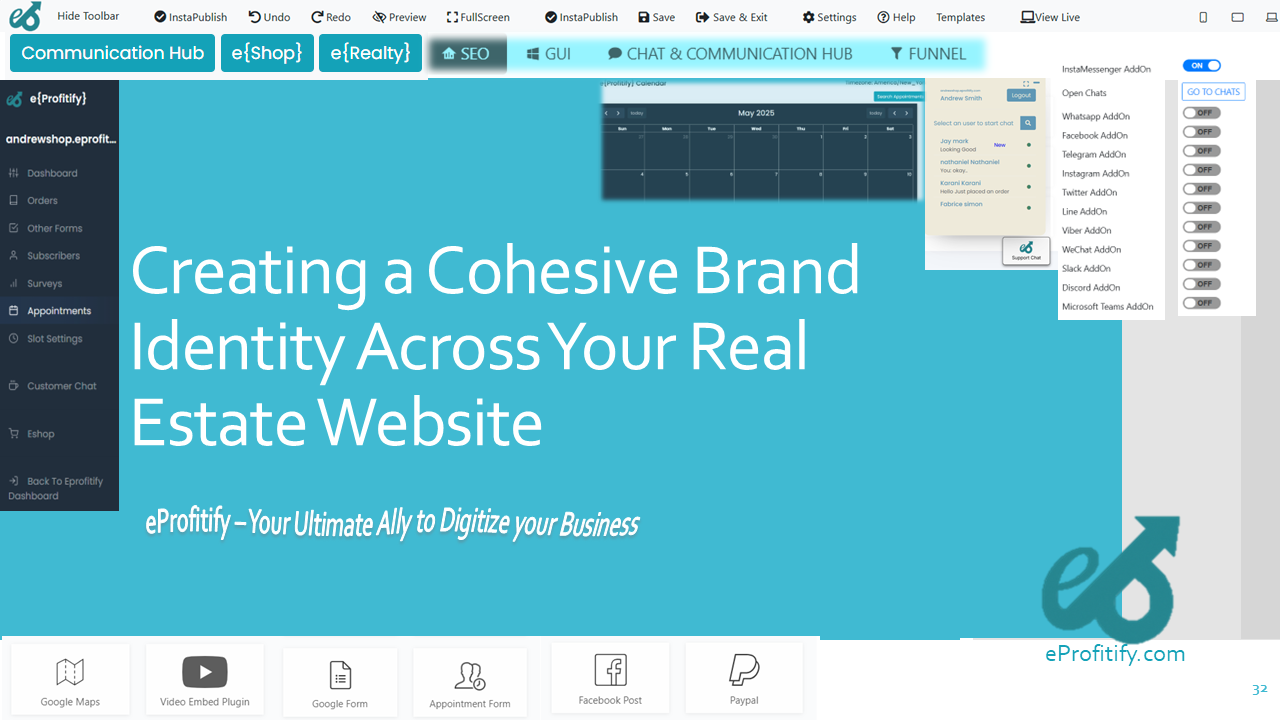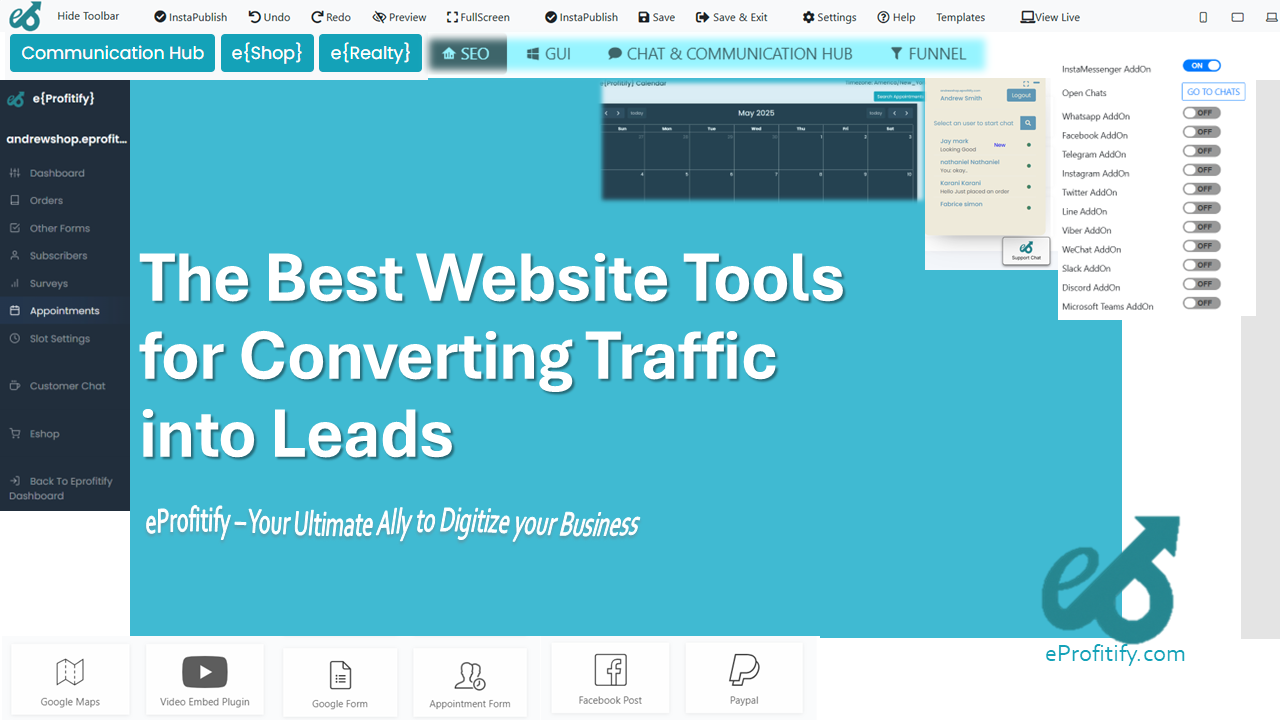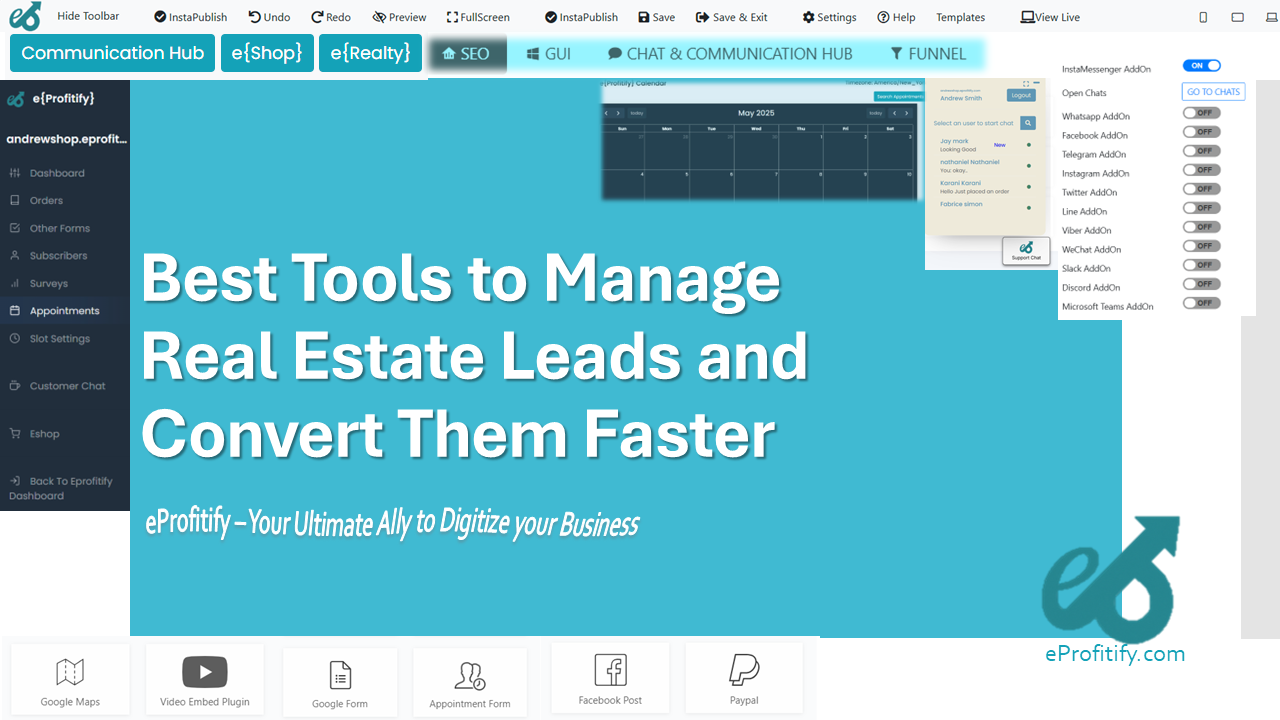Analyzing Client Feedback to Improve Property Listings
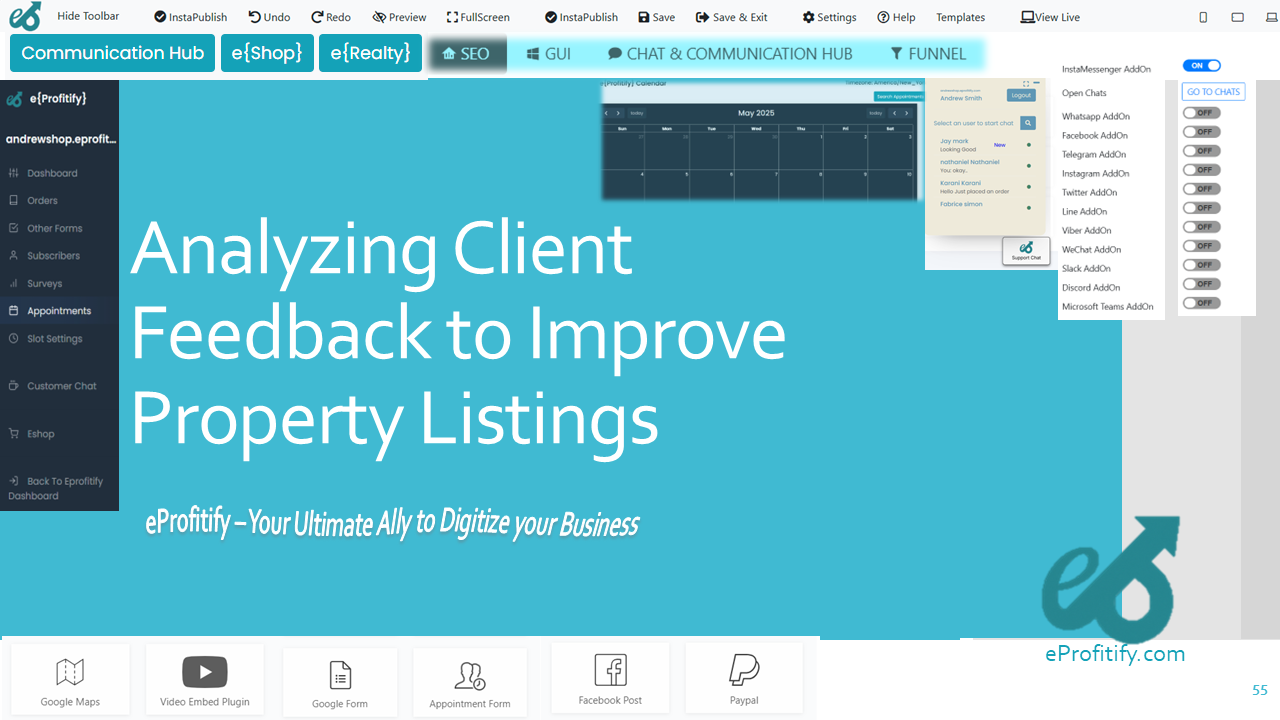
Analyzing Client Feedback to Improve Property Listings: Leveraging Technology for Success
In the competitive real estate market, property listings are more than just advertisements—they are the bridge between buyers and sellers. Client feedback has emerged as a critical tool for refining these listings, ensuring they resonate with target audiences and drive conversions. By systematically analyzing feedback, agents and property managers can identify gaps, enhance user experience, and optimize sales outcomes. This article explores the transformative power of client feedback, supported by statistics, and highlights how platforms like Eprofitify—a leading website publishing and management tool—streamline this process with features such as instant messaging, CRM, and e-commerce integration.
Why Client Feedback Matters in Real Estate
Client feedback offers actionable insights into what potential buyers or renters value most. According to BrightLocal, 84% of consumers trust online reviews as much as personal recommendations, underscoring the importance of maintaining positive perceptions. Similarly, a National Association of Realtors (NAR) study reveals that listings with high-quality photos receive 118% more views, emphasizing the role of visual appeal.
Feedback isn’t limited to explicit reviews; it includes implicit signals like time spent on listings, click-through rates, and inquiry patterns. By decoding this data, agents can adjust pricing, imagery, descriptions, and amenities to meet market demands.
Collecting Client Feedback: Channels and Tools
Effective feedback collection requires a multi-channel approach:
- Surveys and Reviews: Post-viewing surveys or follow-up emails can capture direct opinions. Platforms like Zillow and Realtor.com allow public reviews, which influence buyer decisions.
- Social Media: Comments and shares on platforms like Instagram or Facebook highlight what aspects of a listing spark interest.
- Direct Communication: Real-time interactions during property showings or calls provide immediate insights.
Here’s where Eprofitify adds value. Its instant messaging feature enables agents to communicate with clients in real time, capturing feedback during or after viewings. The appointment management system automates follow-ups, ensuring clients receive timely surveys or calls. All interactions are logged into Eprofitify’s CRM, creating a centralized repository for feedback data.
Analyzing Feedback: Turning Data into Action
Once collected, feedback must be categorized and analyzed:
- Quantitative Analysis: Metrics like average rating (e.g., 4.5/5 stars) or inquiry-to-viewing conversion rates offer measurable benchmarks.
- Qualitative Analysis: Sentiment analysis tools can scan reviews for keywords like "spacious" or "overpriced," identifying recurring themes.
Eprofitify’s CRM excels here by tracking client interactions and feedback trends. For example, if multiple clients mention "limited parking," the CRM flags this issue, prompting agents to address it in listings. According to Nucleus Research, companies using CRM systems see a 29% increase in sales, showcasing the tool’s impact.
Implementing Changes: Enhancing Listings with Feedback
Feedback-driven adjustments can transform a listing’s performance:
- Visual Enhancements: High-resolution photos, 3D tours, or videos address feedback about "poor lighting" or "cluttered spaces." Eprofitify’s e-commerce integration allows agents to upsell virtual tour packages directly from their websites.
- Descriptive Optimization: Rewriting listings to highlight frequently praised features (e.g., "walk-in closet" or "energy-efficient appliances") improves SEO and engagement.
- Pricing Adjustments: If feedback consistently cites high prices, dynamic pricing tools within Eprofitify’s CRM can recommend adjustments based on market comparables.
A case study by Property Management Insights found that listings updated weekly based on feedback achieved a 23% faster sale time. Eprofitify’s website CMS facilitates swift updates, ensuring agents stay agile.
Case Study: Boosting Sales with Data-Driven Strategies
Consider a real estate agency that integrated Eprofitify into its workflow. By using the platform’s instant messaging to gather post-viewing feedback, they identified that 65% of clients wanted more neighborhood information. The agency revamped listings with local amenities data and saw a 40% increase in inquiries within two months. Additionally, their CRM analytics revealed that responsive agents (replying within 10 minutes) converted 35% more leads, prompting the adoption of Eprofitify’s automated alerts.
Conclusion: The Synergy of Feedback and Technology
Client feedback is invaluable, but its true potential is unlocked when paired with robust tools like Eprofitify. From instant communication to CRM-driven analytics, the platform empowers agents to refine listings efficiently. As the real estate landscape grows increasingly digital, leveraging such tools isn’t just optional—it’s essential.
In a PwC survey, 73% of customers cited good service as a key factor in brand loyalty. By harnessing feedback and technology, agents can deliver personalized experiences, foster trust, and ultimately, close more deals. Eprofitify stands at the forefront of this revolution, proving that when innovation meets insight, success follows.
By integrating client feedback with Eprofitify’s suite of tools—CRM, instant messaging, appointment management, and more—real estate professionals can stay ahead in a competitive market. The statistics speak for themselves: streamlined processes lead to higher engagement, faster sales, and satisfied clients. In the age of data-driven decision-making, the marriage of feedback analysis and technology is the key to thriving in real estate.



